The Terminator movies, ranked

Originally, the Terminator franchise was all about defying fate. Sure, humanity may have a grim future of being hunted down by robot skeletons in skin suits, but with a little ingenuity, that dark fate can be averted. As Sarah and John Connor like to remind us in Terminator 2: Judgment Day, "The future is not set. There is no fate but what we make for ourselves."
However, the one machine that humanity can never escape is the movie industry. And rather than breaking the cycle of fate, the success of Terminator and T2 led to a series of successor movies, some much stronger than others. In fact, "I'll be back" began to apply to the franchise as much as it ever applied to the killing machine made famous by Arnold Schwarzenegger.
So, which of these movies is worth going "back in time" via rewatch, and which ones need to be dropped into some molten metal? Just keep reading to discover EW's ranked list of every Terminator movie, from worst to best.
6. <i>Terminator: Genisys</i> (2015)
Terminator: Genisys was, in many ways, doomed from the beginning. Originally, the franchise was meant to continue with multiple movies following up on the future plot of Terminator Salvation. Unfortunately, that movie's tepid performance and the financial woes of The Halcyon Company meant that instead of sequels to Salvation, we got Genisys: a half-baked attempt at rebooting the franchise under the helm of director Alan Taylor.
As EW's critic noted, the plot (involving an alternate timeline created by sending a T-800, again played by Arnold Schwarzenegger, to protect Sarah Connor in the 1970s before eventually helping her and Kyle Reese travel to the future) cynically capitalizes on previous franchise entries. "Its connection to older, better movies cons us into believing it's better than it is," he wrote. Furthermore, the movie can best be summed up as a "wildly expensive, decent-looking, mildly diverting mess that doesn't make a lick of sense."
Ultimately, how well you enjoy this movie depends on how much you enjoy the cast. It's rewarding to see Schwarznegger properly return to the franchise and do new things with his iconic character. It's fun to see J.K. Simmons chewing scenery as a grizzled detective, and Emilia Clarke breathes new life into the franchise as a young Sarah Connor. And speaking of Game of Thrones actors, House of the Dragon fans may be excited to see Matt Smith as a mustache-twirling cybernetic villain. But unless you are really invested in these actors and their performances, you may want to travel back in time and stop yourself from hitting "play" on this stinker.

5. <i>Terminator Salvation</i> (2009)
It sounds like a backhanded compliment, but one of the best things we can say about Terminator: Salvation is that it tried to do something different. Until this movie, the franchise plots were always driven by good guys and bad guys traveling back in time and doing battle in the past for control of the future. Meanwhile, sci-fi junkies seeing glimpses of the apocalyptic future clamored to have an entire movie set in that futuristic hellscape. Salvation gives us such a movie, but it comes with a real case of "be careful what you wish for."
As EW's critic pointed out, Christian Bale is particularly disappointing as John Connor in this movie (though we'll never forget his infamous offscreen tirade). Despite being destined to become humanity's savior, Bale's Connor is "really no more distinctive than the gnarly, unshaven outcast ringleader of every retro-future fantasy" even though the film insists on treating him as "a grunge messiah." The late, great Anton Yelchin serves the story better as a younger version of Kyle Reese, who in turn is destined to become the protector and lover of Sarah Connor and, weirdly enough, John Connor's father.
However, the standout performance in the film comes from future Avatar star Sam Worthington, who plays Marcus Wright, a strange human/Terminator hybrid. Wright serves as an interesting, quasi-everyman figure who is trying to figure out this world of killer robots and the human resistance that is fighting them. But there is only so much the cast can do to elevate a film that leans into the bombastic action and set pieces and hopes you don't notice that this plot would be too thin for a Twitch shooter video game. Of course, that may be exactly what you'd expect from McG, the over-the-top director who, at the time, was best known for directing music videos and the Charlie's Angels movies.
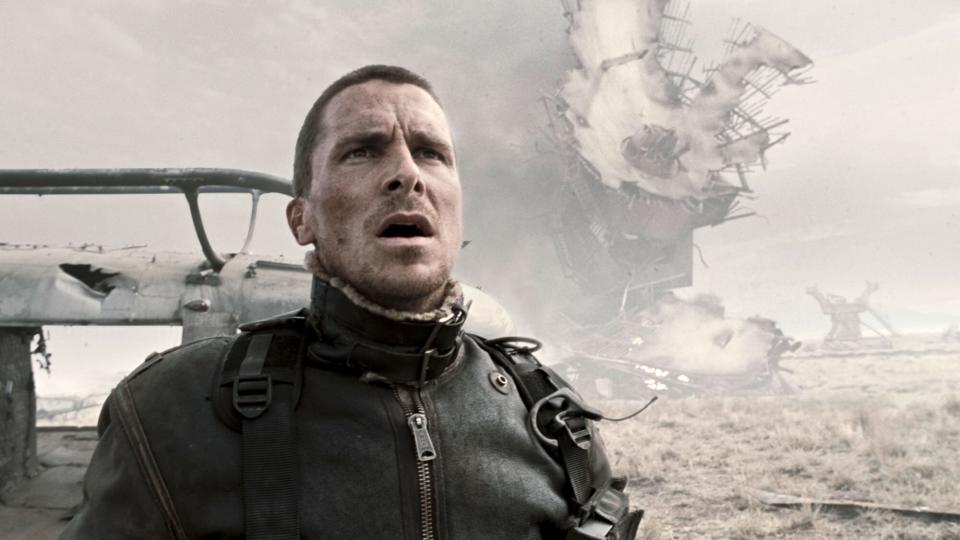
4. <i>Terminator: Dark Fate</i> (2019)
One of the reasons that Terminator: Dark Fate is situated at this spot in the list is that, despite its flaws, the film finds the right balance of infusing familiar elements with a few surprises. For example, this movie ignores the continuity of most of the other installments and presents itself as a direct sequel to Terminator 2: Judgment Day. This allows for the return of franchise favorites Arnold Schwarzenegger and Linda Hamilton, and James Cameron even returns (though as a producer and not director; Tim Miller is in the big chair for this one). But we also get welcome new additions like Mackenzie Davis, who plays a cybernetically-enhanced human who can actually go toe-to-toe with Terminators for brief periods of time.
This mix of "something old, something new" yields some interesting results. For example, EW critic Darren Franich noted in surprise that "Schwarzenegger has somehow become the most lighthearted piece of the Terminator films." Of course, the very presence of Schwarzenegger serves to highlight a franchise that doesn't always know when to move forward or backward. As Franich points out, Arnold making yet another return is an "unsteady piece of franchise recycling, never really deciding whether it's continuing the story of familiar icons or launching a new adventure."
Where does all of this leave Dark Fate? Think of it this way: the Terminator franchise most likely should have stopped after Terminator 2: Judgment Day, seeing as how these movies are stuck in an endless cycle of telling the same story. But if you absolutely have to watch a sequel to T2, Dark Fate isn't the worst option. Whether that says more about this movie or the other mostly forgettable installments, though, remains in the eye of the beholder.
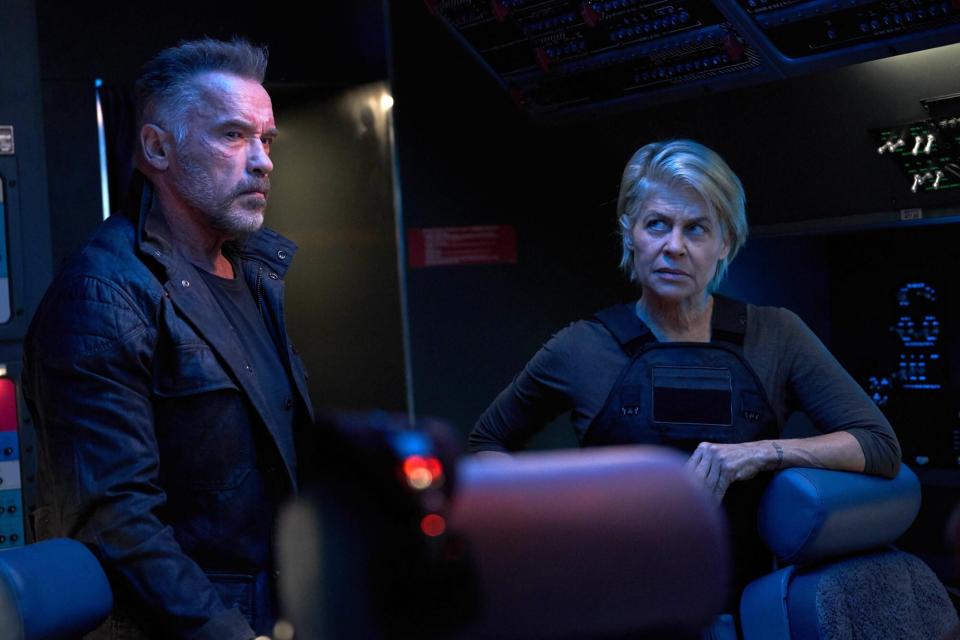
3. <i>Terminator 3: Rise of the Machines</i> (2003)
Terminator 3 is a bit like a Rorschach test for fans of the franchise. That's because different fans see different things in this movie every time they watch it. And whether you end up loving or hating this movie depends on whether you can make peace with it basically undoing the central plot of Terminator 2.
At its core, Terminator 3: Rise of the Machines is a very competent, often entertaining film. As EW's Lisa Schwarzbaum noted, "director Jonathan Mostow, and screenwriters John Brancato and Michael Ferris make up for in bright, heavy metal charm, unexpectedly lively and self-aware wit." Furthermore, now that CGI has become so ever-present, there is a certain charm to a film that knows "when to stop fussing with special effects" and embraces the "low-tech magic" of things like hearing Arnold's unmistakable accent.
But why is a generally good movie so divisive? First, the performances are something of a mixed bag. Schwarzenegger is pitch-perfect, and Claire Danes shines as Kate Brewster, the future wife of John Connor. But Connor himself is played by Nick Stahl, and his performance seems to have only two gears: uncertain and wigging out. And Kristanna Loken is very game as the killer T-X sent from the future, but she doesn't really have any moments to showcase personality in the ways that previous terminators (including the T-1000 played by Robert Patrick) did.
The biggest issue fans have with Terminator 3, though (and beware: spoilers ahead) is that the ending spits in the face of Terminator 2. The movie reveals that all John and Sarah Connor did in T2 was to delay the apocalypse instead of stopping it. And this leads to a truly shocking ending where our heroes fail: Skynet becomes sentient and begins launching nukes, wiping out most life across the planet. We are left seeing John Connor tentatively take command of what is left of the population, but it's difficult to root for him as a future resistance leader as we just watched him drop the ball so spectacularly when the entire future of humanity was on the line.
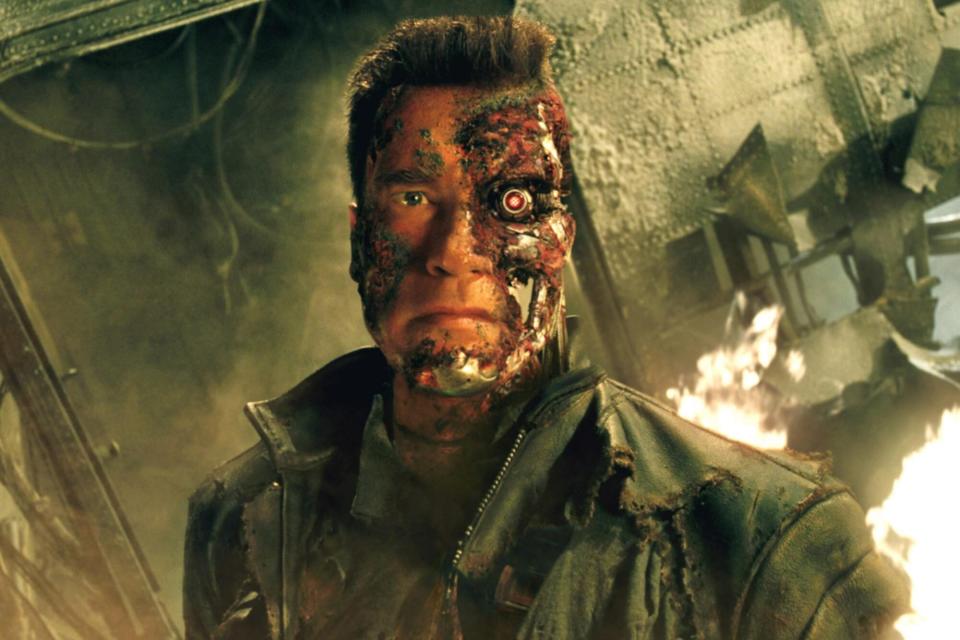
2. <i>The Terminator</i> (1984)
There is so little to say about the first Terminator movie that hasn't already been said. After all, this movie did more than launch an unstoppable sci-fi franchise into the world. As EW critic Joe McGovern points out, this movie also "launched the career of James Cameron" and "boosted Arnold Schwarzenegger, whose monotone delivery and muscle-bound swagger made a cyborg assassin the height of cool." We might never have had future blockbusters like Avatar and Titanic if not for the success of this film.
It's also fair to say that this was the movie that really put Linda Hamilton on the map, and she gives a powerful performance as Sarah Connor, a beleaguered waitress suddenly hunted down by a merciless cyborg from the future before she can eventually become a mom to a messiah. Meanwhile, Michael Biehn shows off his action hero chops as Kyle Reese, the time-traveling hero sent back to protector Connor, in a role that would lay the groundwork for his even more bombastic action turn in Cameron's Aliens.
However, it's important to remember the first Terminator movie as more than a sci-fi/action flick. First, the movie serves as a masterclass on how to make the most from using very little. When comparing this film to its sequel, EW critic Richard Schickel pointed out that the original was "epic in concept rather than in budget" and still provided "surprising seamlessness" in its storytelling.
Second, and perhaps most importantly, is that Cameron knew how to inject the right amount of humanity into a movie about resistance fighters, time travel, and killer robots. The Terminator is as much a love story as it is an action vehicle. And it offers a solid philosophical meditation on heady concepts like fate, technology, and taking control of our lives. And it is just this spark of humanity that later movies would be missing as they focused instead on special effects and snazzy digital violence.
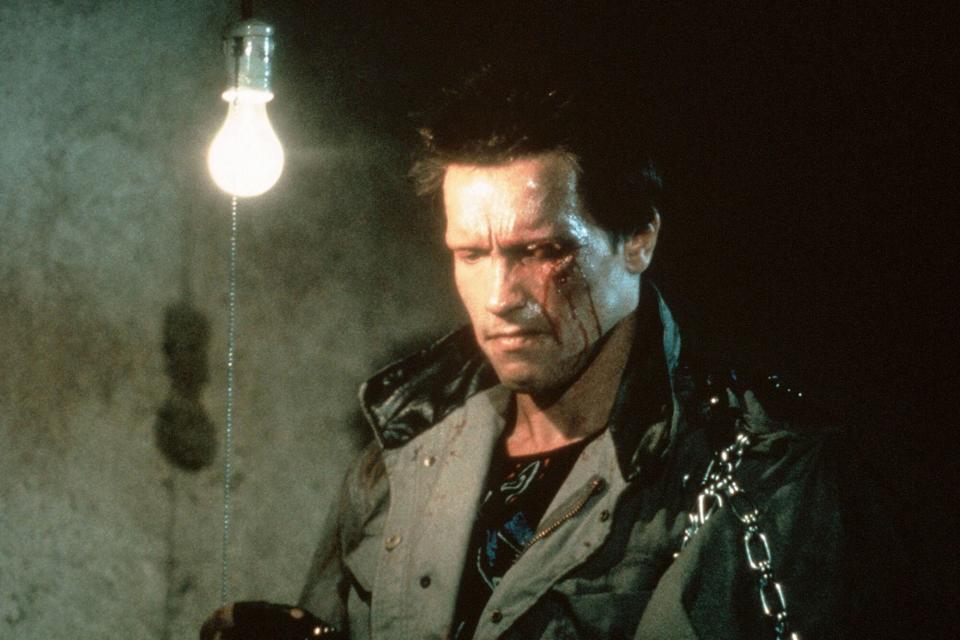
1. <i>Terminator 2: Judgment Day</i> (1991)
Grizzled veterans of the cineplex eventually adopted a few rules to live by, and one of them is this: "sequels suck." Most of the time, sequels do little more than remind us of how much better the original film was and how much we'd rather be watching it. And the Terminator franchise is certainly guilty of delivering diminished returns that leave fans wondering why they bothered to make all these follow-ups in the first place.
And the answer is quite simple: James Cameron's Terminator 2 is basically a perfect sequel. It is, in fact, one of the rare sequels that is even better than the original movie. Part of the magic is that we see how much familiar characters have reinvented themselves. For example, Linda Hamilton played Sarah Connor as a mostly-helpless waitress in the original, but in T2, she has transformed herself into the ultimate badass, complete with a sense of fearlessness and arms that are just as intimidating as any killer robot. She also, however, handles quiet pathos as well as she does loud action. As EW's critic noted, Connor and her knowledge of the future apocalypse often clashes with people who understandably think she's crazy, but "Hamilton brings these scenes a raw anguish, especially when she stares down the weasely Dr. Silberman (Earl Boen), whose bureaucratic manner is a form of petty sadism."
Meanwhile, Schwarzenegger delivers on the premise of the original movie's iconic "I'll be back" line by reprising his role as this futuristic murderbot. But there's a twist: he's actually a good robot reprogrammed by the human resistance to protect a young John Connor (played very ably by Edward Furlong) from getting killed by the shapeshifting, liquid metal-based T-1000, a more advanced Terminator played by Robert Patrick and brought to life using cutting-edge special effects.
The final result is a movie that truly fires on all cylinders. In terms of action, Terminator 2 delivers unforgettable sequence after sequence that Hollywood has yet to top. But the movie also serves as a story of family, both biological (we see Sarah and John Connor reconcile once he realizes she was always telling the truth) and found (Arnold's good guy T-800 becomes a kind of surrogate father to John). And, like the first movie, this sequel asks us to consider the destructive path humanity is on. First, we see Sarah plagued by nightmares of nuclear holocaust turning her screaming body into nothing more than a scorching pile of ashes. But the real gut punch moment comes when John Connor sees young children pretending to shoot each other using very realistic toy guns. "We're not gonna make it, are we?" he asks. "People, I mean."
Without any hesitation, Arnold gives his answer: "It is in your nature to destroy yourselves," which perhaps becomes the most prescient line of the series, one that leaves us wondering and worrying if it's possible for any of us to truly make our own fate.
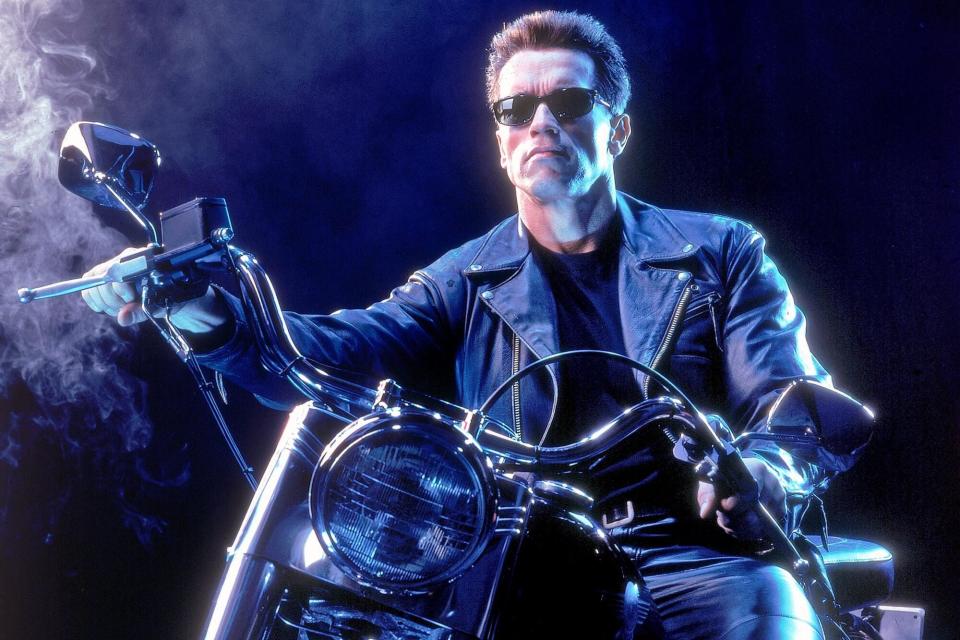
Related content:


